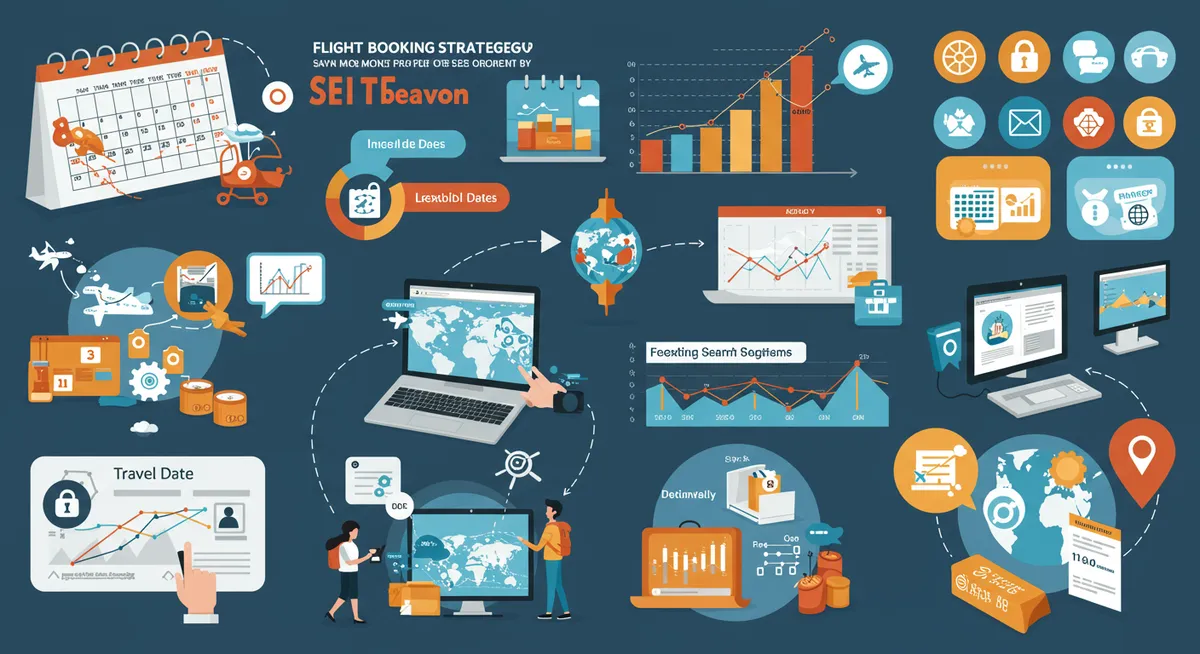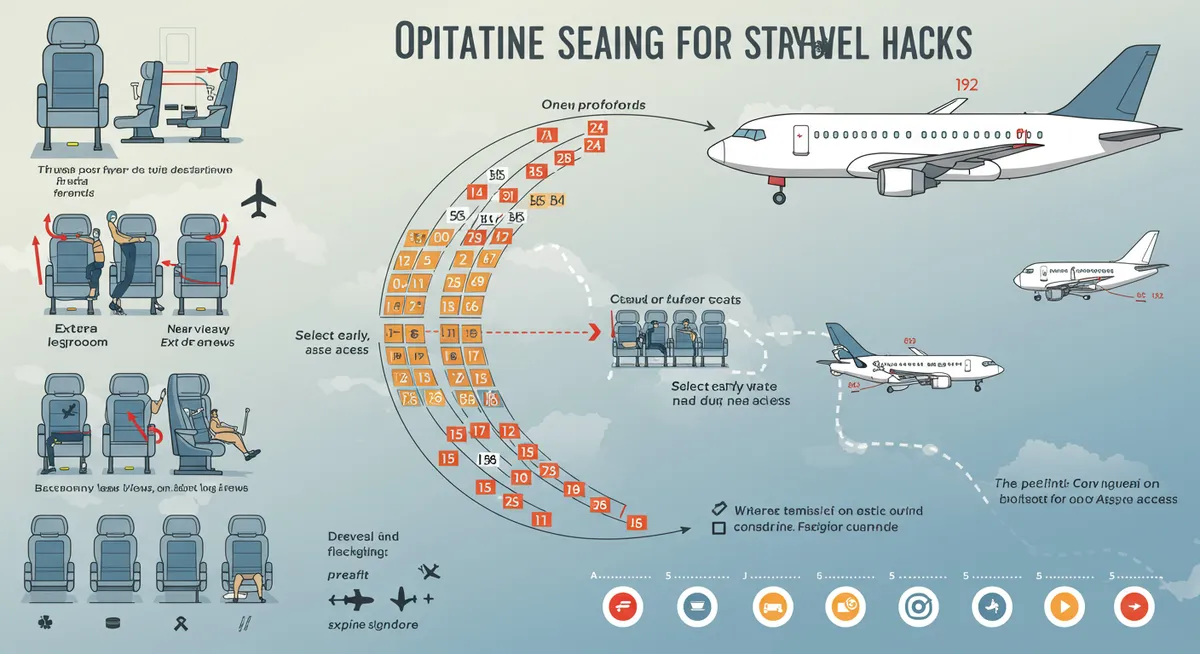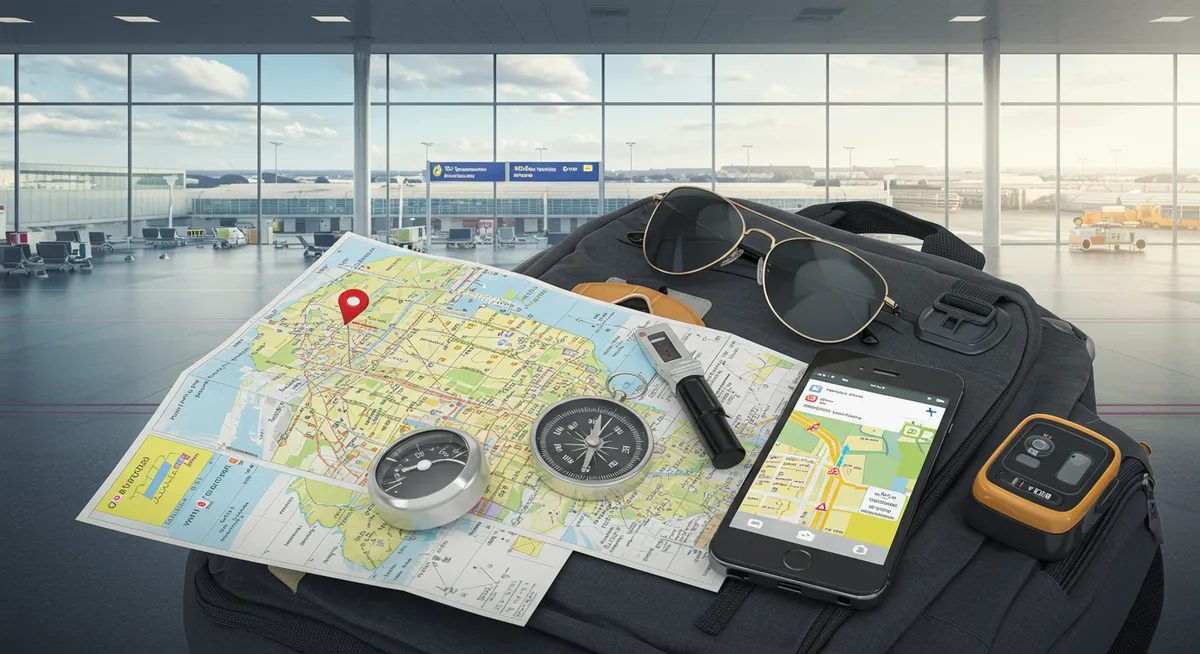
10 Essential Flight Hacks to Save Money and Travel Better
Table of Contents
Want to find the best travel deals for this destination? Chat with our travel hacking specialist!
Get Travel HacksCategory: flight-hacks
10 Essential Flight Hacks to Save Money and Travel Better
Air travel can be one of the most expensive aspects of any trip, but with the right strategies, you can significantly reduce costs while enhancing your overall flight experience. These 10 flight hacks combine industry insights, technological tools, and insider knowledge to help you find better deals, secure more comfortable seating, and navigate the complexities of modern air travel. Whether you're a frequent flyer or an occasional traveler, these practical techniques will transform how you book and experience flights.
Finding the Best Flight Deals
The secret to securing affordable airfare lies in understanding the complex pricing systems airlines use and leveraging technology to your advantage. These first several hacks focus on strategies to find and book flights at the lowest possible prices.
1. Master the Art of Flexible Date Searches
Flight prices can vary dramatically depending on the day of the week and time of year. Use search engines like Google Flights, Skyscanner, or Kayak that offer flexible date options to visualize price differences across days or even months. Flying mid-week (particularly Tuesday and Wednesday) typically offers savings of 15-20% compared to weekend departures. For international trips, being flexible with your travel dates by just a few days can sometimes save hundreds of dollars.
Pro Tip: When searching, use the "whole month" or calendar view to quickly identify the cheapest days to fly. Even a one-day shift in your travel dates can result in significant savings.
2. Utilize the 24-Hour Cancellation Rule
Most airlines and online travel agencies operating in the United States are required by law to allow passengers to cancel or change their reservation within 24 hours of booking without penalty, as long as the ticket is purchased at least seven days before the flight. This rule creates a powerful opportunity: if you find a good deal, book it immediately to lock in the price. Then continue searching for better deals over the next 24 hours. If you find a cheaper flight, cancel the original booking and book the new one.
3. Implement Strategic Timing for Bookings
Contrary to popular belief, there is no single "best day" to book flights. However, timing still matters. For domestic flights, booking 4-6 weeks in advance typically yields the best prices. For international flights, extending your search to 2-3 months ahead often secures better rates. Additionally, airlines often release new fare sales on Monday evenings, making Tuesday mornings a good time to check for fresh deals as competitors match prices.

4. Embrace the Power of Fare Alerts
Let technology do the hard work by setting up fare alerts on multiple platforms for your desired routes. Services like Airfare Watchdog, Scott's Cheap Flights, and Google Flights will notify you when prices drop or when exceptional deals become available. For maximum effectiveness, set up alerts 3-6 months before your intended travel dates and be prepared to book quickly when a great deal appears, as the best fares often last only a few hours.
5. Consider Alternative Airports and Hidden-City Ticketing
Flying into or out of secondary airports can often save money, particularly in regions with multiple airport options like New York, London, or Tokyo. Always check prices for all airports within a reasonable distance from your destination. Additionally, "hidden-city ticketing" is a controversial but effective strategy where you book a flight with a connection to a less expensive destination but exit at the layover city (your actual destination). Tools like Skiplagged specialize in finding these opportunities.
Important Note: Hidden-city ticketing violates most airlines' contracts of carriage. Never check bags when using this strategy, don't use it with round-trip tickets (only one-way), and avoid associating it with your frequent flyer accounts. Use at your own discretion.
Upgrading Your In-Flight Experience
Beyond finding cheaper fares, these next hacks focus on making your time in the air more comfortable and enjoyable without paying premium prices for business or first class.
6. Master the Strategic Seat Selection
Your seat choice significantly impacts your comfort during a flight. Use SeatGuru.com to check the seat map for your specific flight before selection, as it highlights problematic seats (limited recline, no window, proximity to bathrooms) and identifies those with extra legroom. For economy flights, exit rows and bulkhead seats typically offer more space but may have restrictions. If traveling with a companion on a less crowded flight, book the window and aisle seats in a row of three – middle seats are chosen last, giving you a chance at having an empty seat between you.
7. Leverage Airline Status Match Programs
If you have elite status with one airline, you may be able to "status match" with another carrier, either temporarily or permanently. Most major airlines offer these programs to attract frequent flyers from competitors. Having status often means priority boarding, free seat selection, priority customer service, and sometimes lounge access or upgrade opportunities. Check airline websites for their current status match offers and requirements, which typically involve providing proof of your existing status with another carrier.

8. Use the "Upgrade at the Gate" Technique
Airlines often offer heavily discounted upgrades at the last minute if premium cabins aren't full. Arriving early at the gate and politely asking the agent about upgrade availability can sometimes result in business class opportunities for a fraction of the original price difference. This strategy works best when flying alone, during off-peak times, and when you're dressed presentably. Additionally, if you've experienced any service issues on previous flights with the airline, mentioning this politely might increase your chances of a complimentary upgrade as a goodwill gesture.
Maximizing Travel Efficiency
The final set of hacks focuses on making your overall air travel experience smoother, from navigating airports to dealing with potential disruptions.
9. Optimize Your Airport Experience with Apps and Programs
Enroll in trusted traveler programs like TSA PreCheck (US domestic) or Global Entry (international) to bypass regular security lines. The Mobile Passport Control app offers a free alternative to Global Entry for US citizens returning from international destinations. Use your airline's mobile app for real-time gate information, delay updates, and digital boarding passes. Additionally, apps like LoungeBuddy can help identify lounges you might access through credit cards or by purchasing day passes, providing a comfortable space during long layovers.
10. Master the Art of Flight Disruption Compensation
When flights are significantly delayed or canceled, passengers often have more rights than they realize. In the European Union, EC Regulation 261/2004 provides for compensation of up to €600 for qualifying delays. In the US, while regulations are less generous, airlines still have obligations outlined in their "Contract of Carriage." Services like AirHelp can analyze your flight history and automatically claim compensation you're entitled to. Additionally, many premium travel credit cards offer trip delay insurance that covers meals and accommodations when flights are delayed beyond a certain threshold.

By implementing these flight hacks, you'll join the ranks of savvy travelers who consistently secure better deals and more comfortable experiences. The key is approaching air travel systematically—using technology to your advantage, understanding airline pricing dynamics, and planning strategically. While some of these techniques require additional effort, the potential savings and comfort improvements make them well worth incorporating into your travel planning routine. Start with the hacks that address your primary air travel pain points, whether that's high ticket prices, uncomfortable seating, or airport stress, and gradually add more strategies to your travel toolkit.
Explore Our Advanced Flight Strategy Guides
While these 10 flight hacks will significantly improve your air travel experience, we've also developed more comprehensive, specialized flight strategies for travelers seeking to master every aspect of air travel:
- 24-Hour Flight Price Lock Strategy - Master the little-known technique that can save you up to $300 per flight
- AI Flight Price Prediction Tool Strategy - Use artificial intelligence to secure the lowest possible airfares
These flight strategies are part of our comprehensive Top-Rated Travel Strategies collection, featuring our most powerful travel techniques.
Related Travel Hack Collections
To optimize your entire travel experience beyond just flights, explore these complementary guides:
- Complete Travel Hacks Guide - Our comprehensive collection of 50 essential travel hacks
- Airport Hacks - Master the art of stress-free airport navigation
- Money-Saving Travel Hacks - Additional techniques to reduce your overall travel costs
- Planning and Booking Hacks - Strategies for the pre-departure phase of travel
Frequently Asked Questions About Flight Hacks
Is it really cheaper to book flights on certain days of the week?
The notion that booking on specific days (like Tuesdays) always yields cheaper flights is largely a myth today. While airlines used to release fare sales on predictable schedules, modern pricing algorithms adjust fares constantly based on demand, competition, and other factors. That said, flight prices do tend to be lower for departures on Tuesdays, Wednesdays, and Saturdays when business travel demand is reduced. The most important factor for finding lower prices is booking within the optimal window (4-6 weeks for domestic, 2-3 months for international) and using fare comparison tools that track price trends over time.
How can I increase my chances of getting a free upgrade to business class?
While truly free upgrades have become rare in the airline industry, you can improve your chances through several strategies. First, earn elite status with an airline's frequent flyer program, as these passengers are first in line for complimentary upgrades. Second, fly during off-peak times and on routes less popular with business travelers. Third, travel alone, as single travelers are easier to accommodate than groups. Fourth, arrive early and dress well—agents have discretion and may favor professionally dressed passengers. Fifth, be exceedingly polite and briefly mention special occasions like honeymoons or anniversaries. Finally, consider using miles or points for upgrades rather than waiting for free ones, as this is often the most reliable path to premium cabins.
Are flight prices really higher if I search multiple times for the same route?
While airlines and booking sites do use cookies and browsing data to influence displayed prices in some cases, this practice is less widespread than commonly believed. Nevertheless, it's still prudent to search for flights in your browser's incognito or private mode, which prevents websites from accessing your cookies or browsing history. Additionally, using a VPN to appear as if you're searching from different countries can sometimes reveal different pricing, as airlines may offer lower fares in certain markets. For the most thorough approach, compare prices across multiple devices, browsers, and search platforms to ensure you're seeing the full range of available fares.
Is it worth paying for premium economy seats on long-haul flights?
Premium economy can offer substantial value, particularly on flights longer than 7-8 hours, but its worth depends on the specific airline and aircraft. The best premium economy products offer 5-7 inches of extra legroom, wider seats with deeper recline, enhanced meal service, priority boarding, additional baggage allowance, and amenity kits. For long-haul flights, these improvements can significantly impact comfort and rest quality for a price typically 30-60% higher than standard economy (compared to business class, which may be 200-400% more). To determine value, research the specific premium economy offering on your aircraft using sites like SeatGuru, and compare the price premium against the flight duration. As a rule of thumb, premium economy offers the best value-to-price ratio on overnight or ultra-long-haul routes where improved sleep quality has the greatest impact.
How can I avoid or minimize jet lag when flying across multiple time zones?
To minimize jet lag, implement these evidence-based strategies: First, begin adjusting your sleep schedule 2-3 days before departure, shifting 1-2 hours per day toward your destination's time zone. Second, immediately upon boarding, set your watch to your destination's local time and begin behaving accordingly (sleeping/eating based on destination time). Third, stay well-hydrated during the flight while avoiding alcohol and caffeine, which disrupt sleep patterns. Fourth, if arriving in daylight hours, spend time outdoors as sunlight helps reset your circadian rhythm. Fifth, consider taking melatonin at your destination's bedtime for the first few nights (typically 0.5-5mg, but consult a healthcare provider first). Sixth, for business travelers with important meetings, arrive 1-2 days early for every 4-5 time zones crossed to allow adjustment time. Finally, short-term use of prescribed sleep aids may help in some cases, but discuss this option with your doctor.